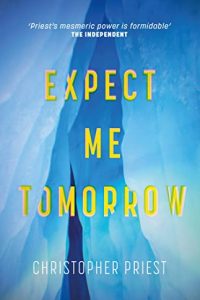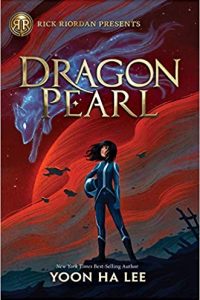Jake Casella Brookins Reviews The Years Shall Run Like Rabbits by Ben Berman Ghan
 The Years Shall Run Like Rabbits, Ben Berman Ghan (Buckrider Books 978-1-98949-688-6, 300pp, $21.00, tp) May 2024.
The Years Shall Run Like Rabbits, Ben Berman Ghan (Buckrider Books 978-1-98949-688-6, 300pp, $21.00, tp) May 2024.
Sometimes, I really enjoy speculative fiction that works more by image and dream logic than plot and worldbuilding. Not to say Ben Berman Ghan’s The Years Shall Run Like Rabbits lacks those traditional elements: The ingredients here are quite recognizable – deadly cyborgs and lunar colonies, time travel and genetic engineering. But Ghan doesn’t use these elements for a straightforward, linear plot, instead weaving together a variety of voices, styles, and perspectives in a story that repeatedly dispenses with linear time and straightforward reality. Shot through with love stories, anger at authoritarian cruelty, and surreal and striking visions, it’s an elegiac and ruminative novel – a strange but moving meditation on death and change and what comes after.
Anchored in Toronto, the novel begins on the moon, where a mysterious Gardener – ‘‘something like an angel’’ – is planting seeds that sprout and transform the lunar surface. The nations of Earth are quick to colonize the newly habitable satellite, but soon discover that something even stranger is growing: On the moon, the dead don’t seem to stay dead. Cyborgs investigate, lunar cities fall, refugees flee to Earth to be held in oppressive and paranoid camps, and that’s just the beginning – the novel spans centuries, and sees the arrival of time-traveling space-whales, emergent intelligences, and bizarre postapocalyptic, post-human ecosystems peopled with strange beings and enduring emotion.
And we don’t hear this story in anything like a neat summary. Timelines loop and coil back on each other, speakers lose their identities and gain new ones. Each chapter has a distinct flavor, a distinct and incomplete point of view – our narrators and protagonists are always struggling with what they don’t know, which often includes their own pasts. Daisy and Morgan, initially human lovers who both grow into very different kinds of beings, are one locus of narration, but we also hear from some of the scientists who designed some of the novel’s stranger developments, the strangely fated firstborn of the moon, the rogue and mournful hologram ghosts of Toronto, and – in an unexpectedly cute bit that mostly works – an actual brave little toaster.
This is perhaps the first SF work I’ve encountered that feels like it owes a direct stylistic debt to Amal El-Mohtar & Max Gladstone’s This Is How You Lose The Time War, particularly that novella’s interstitial ‘‘seeker’’ chapters. It may, in fairness, be a case of similar inspirations and themes – but I was really struck by the parallels, the technologically and biologically enhanced characters, the time travel, and, more than that, Ghan’s sense of poetry and emotion, his sensual and violent imagery. There’s also more than a little here that resonates with Jeff VanderMeer’s work – the feeling of flawed but fecund ecological exuberance, an intersection of horror and fascination in modified and modifying life. As well as the stylistic leanings – with its use of longform poetry and dreamlike collage, the closest match for The Years Shall Run Like Rabbits’s textual structure I can think of is Dead Astronauts. One is tempted to call it ‘‘slipstream,’’ if that term’s still in use.
I found myself quite impressed by Ghan’s use of Toronto as a setting, both before and after the fall. It’s one of the more genuine uses of place I’ve encountered in a while, deeply informed by specific geography and culture, and if, as the narrative jumps between the moon and Toronto over the centuries, I sometimes wondered what was going on in the rest of the world – well, one could ask the same of countless novels set in more frequently depicted postapocalyptic environs. Ghan’s particularly keen in his critique of the city’s incipient authoritarianism, its willingness to hand over responsibility to cruel machinery. As I write this, America’s Department of Homeland Security, one of our more overtly jackbooted institutions, is declaring its intent to embrace ‘‘AI’’ despite the risibly flawed and biased state of that technology in our actual timeline; it makes the monstrous city-AI of The Years Shall Run Like Rabbits, with its prison camps and death-cult viciousness, seem much less far-fetched than I’d like.
‘‘From a seed, a flower, a dying girl, bursts a forest to consume the intelligence of skyscrapers.’’ Where the novel shines is in its assurance that life – strange, mutating, sometimes frightening or fearful – is more complex and resilient than the non-life arrayed against it. This is a novel very much concerned with death and what happens next, with consciousness and identity scattered, transformed, recollected. Ambitious in scale and scope, inventive and concrete in its imagery, The Years Shall Run Like Rabbits is a weird and splendid delight, haunting and sincere.
Jake Casella Brookins is from the Pennsylvania Appalachians, and spent a fantastic amount of time in the woods. He studied biology, before switching over to philosophy & literature, at Mansfield University. He’s been a specialty coffee professional since 2006. He’s worn a lot of coffee hats. He worked in Upstate New York and Ontario for about 8 years. He’s been in Chicago since 2013; prior to the pandemic, he worked for Intelligentsia Coffee in the Loop. Starting in 2021, he’s been selling books at a local indie bookstore. He lives with his wife, Alison, and their dogs Tiptree & Jo, in Logan Square.
This review and more like it in the May 2024 issue of Locus.
 While you are here, please take a moment to support Locus with a one-time or recurring donation. We rely on reader donations to keep the magazine and site going, and would like to keep the site paywall free, but WE NEED YOUR FINANCIAL SUPPORT to continue quality coverage of the science fiction and fantasy field.
While you are here, please take a moment to support Locus with a one-time or recurring donation. We rely on reader donations to keep the magazine and site going, and would like to keep the site paywall free, but WE NEED YOUR FINANCIAL SUPPORT to continue quality coverage of the science fiction and fantasy field.
©Locus Magazine. Copyrighted material may not be republished without permission of LSFF.







